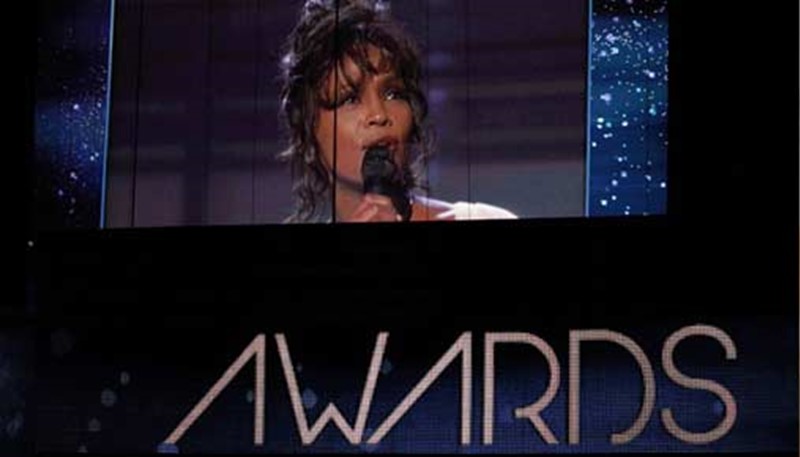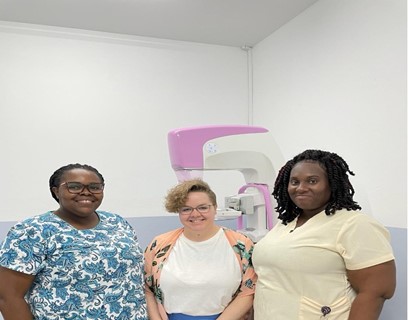
Whitney Houston was for nearly two decades the center of pop music, an inspiration to several generations of pop divas, from Mariah Carey to Beyonce, and countless American Idol contestants.
They heard in Houston an invitation to musical excess, to embroider every syllable until it sounded like three and to garnish every note with multi-octave trills. It wasn't Houston's fault that none of them possessed her relaxed-yet-confident command, her ability to astonish and at the same time keep the focus on the matter at hand: not the greater glory of Whitney and her supersonic voice, but the song.Houston, who died Saturday in a Los Angeles hotel room at age 48, has had her legacy tarnished by legions who think they needed to over-sing so that they could sound like Whitney. They need to listen again to her performance of the National Anthem at the outset of the 1991 Super Bowl. Minutes before kick-off, she stood in front of an orchestra with a smile, looking casual and at ease in a white bandana and track suit.
She just as easily could've been hosting a party in her back yard, but she was there to sing in front of a national television audience in a time of trouble (it was a great touch - she didn't look like a diva, at all, but your next-door neighbor). America had just gone to war with Iraq, and the country's biggest sporting event was about to begin under a cloud of anxiety.
Houston took those emotions and wrapped them in a voice that no one who heard it that day would ever forget. In two minutes, she took the anthem and turned it into a mini-opera, asking us - the listeners and viewers - to carefully reconsider each word. She began with strength and dignity, the power in her voice undeniable. Then, on the words whose bright stripes and bright stars, she dropped her voice, dragging slightly behind the tempo, as if lost in a reverie: the flag, appearing dream-like amid the carnage of war. It was a set-up for the rest of the song, a prelude to the inevitable triumphant finish. But even here, Houston never appeared to be straining or show-boating.
Instead, what she projected was confidence, faith, an unwavering belief in something greater than herself. When she hit the word free, she stretched her arms wide and closed her eyes, turning it into an ecstatic cry. She held the final brave for 11 seconds, seemingly without stress. Her voice was creased not by strain but a smile as she raised first her right arm then her left to the sky, as if she were a choir director, and the fans in the football stadium were singing with her. In a way they were.
The 11-second brave was a springboard for future generations of wanna-be Whitneys, the long held note becoming a clich in countless pop performances. Just last year at the start of another Super Bowl, Christina Aguilera was all about the frills as she sang her version of the National Anthem, turning it into a display of vocal prowess that came at the expense of the words, some of which she flubbed.
Houston was, ultimately, a pop singer beholden to her songwriters and producers for material worthy of her prodigious, gospel-trained instrument. She was guided by Clive Davis, a veteran talent scout who survived decades of changing trends and music-industry upheavals by risking little and investing plenty in expensive-sounding production and image-making. Houston played along and played well, sometimes transcending her manicured surroundings so spectacularly that even her skeptics had to give in. For much of the '80s and '90s, she was a pop icon, with two 10-million-selling albums and six Grammy Awards.
Her 1992 performance of I Will Always Love You is Houston's career condensed into less than five minutes, a great singer bathed in production that has not aged well. And yet Houston made something beautiful and lasting out of it anyway.
Dolly Parton wrote and originally performed the song in the '70s before it became the centerpiece of The Bodyguard, Houston's 1992 movie with Kevin Costner about an inter-racial love affair. Houston loved the Parton song, and she pays it the highest compliment by performing the first 45 seconds a cappella. By muting the volume, delivering each line with deliberation and delicacy, she lasers in on the song's simple but potent expression of love that will endure even though the relationship is crumbling.
Those who dislike Houston's music inevitably focus on the slickness of the production, and I Will Always Love You is dressed up with unctuous saxophone and plush keyboards. But the singer's voice, and her investment in the story, swipes away such quibbles. She opens up, an ache shading the hosanna vibration in her voice, the one she brought with her from church when she was just a girl studying with her mother, the great gospel vocalist Cissy Houston. And then she brings it back down again, her tone holding strong even as the character she portrays threatens to break.
That Houston was seemingly unable to do that in her own life is the tragedy that underlines her sudden death. The voice, like the love in Always, will endure.
Photo credit and story appearance to the Chicago Tribune's Greg Knot
{loadposition facebook}


